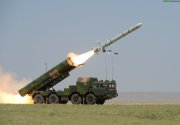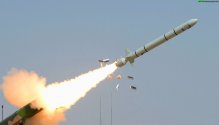A minimum deterrence strategy works when the regime has nothing to lose, and the country was poor, which the main adversary was many times more powerful materially and impossible to defeat in a conventional war. North Korea today would be a good fit for adopting a minimum deterrence strategy (which it has achieved since late 2017). In other words, minimum deterrence strategy was equivalent to a nation-wide suicide bombing campaign with the hope that by detonating itself, the much weaker defender could at least cripple the much stronger foe. However, China has much to lose today, and if I were decision makers in Beijing, one of the questions in my mind would be what if my adversary were to use low-yield, radiation-enhanced tactical nuclear weapons first with the hope of "escalating to de-escalate," especially in a scenario when an enemy (think Trump or Putin, practitioners of brinkmanship) were to completely annihilate one single Chinese naval port city (like Qingdao, Dalian, or Zhanjiang) and cause more than a million casualty, completely incinerating all industrial capacities of that city as well. And subsequently warn me not to escalate, or expect nastiers sneak attacks short of all-out nuclear exchange.


